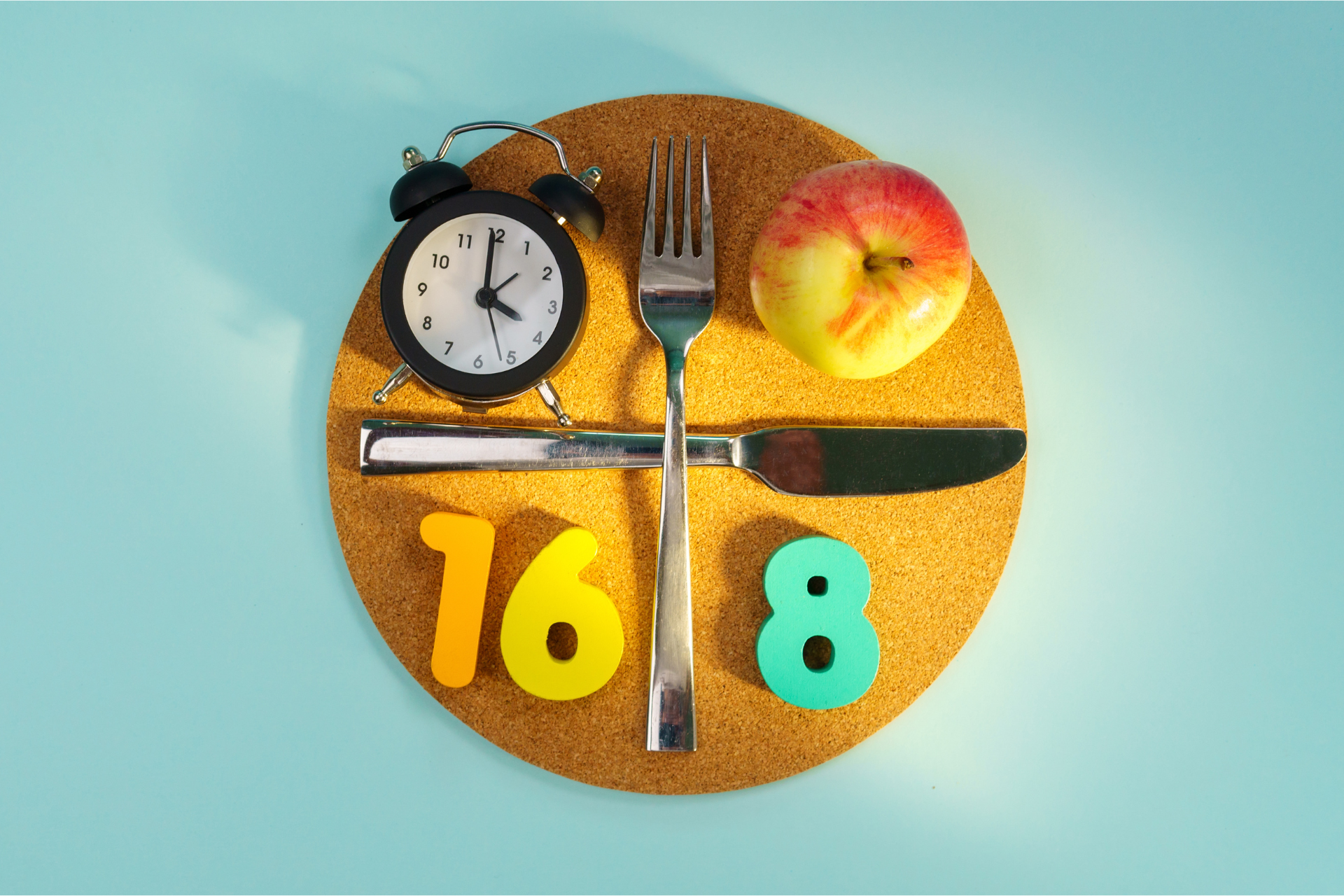Have you ever felt like you’re doing everything right, yet still missing something crucial? That’s how I felt when I first started intermittent fasting. I thought it would be simple—skip breakfast, eat for 8 hours, fast for 16, and voilà, results would come. But what I quickly realized is that this practice, like many things in life, requires more than just going through the motions. It’s about truly understanding your body and avoiding common pitfalls that could hold you back.
Whether you’re just starting your 16/8 journey or you’ve been at it for a while, it’s so easy to fall into mistakes that can sabotage your efforts. Let me walk you through some of these common missteps and how to avoid them, based on my own experience (and a few blunders of my own).

- Mistake #1: Not Eating Enough During Your Eating Window
- Mistake #2: Obsessing Over the Clock
- Mistake #4: Ignoring Hydration
- Mistake #5: Neglecting Sleep
- Mistake #6: Not Giving Yourself Grace
- Mistake #7: Relying on Caffeine to Get Through Your Fast
- Mistake #8: Being Too Rigid with Your Eating Window
- Mistake #9: Not Planning Your Meals Ahead of Time
- Mistake #10: Expecting Instant Results
- Mistake #11: Comparing Your Journey to Others
- Adjusting and Adapting: Finding Your Flow
- Final Thoughts: A Gentle Reminder
Mistake #1: Not Eating Enough During Your Eating Window
You might think that fasting is all about restricting what you eat, but here’s the kicker: it’s also about nourishing your body well during that eating window. One of the biggest mistakes I made early on was under-eating during the 8-hour period. I thought, The less I eat, the better the results, right? Wrong.
Undereating leaves your body undernourished, leading to fatigue, irritability, and, eventually, a binge that feels out of control. Imagine driving a car on an empty tank—you’ll get nowhere fast. Your body works the same way.
When I started focusing on balanced meals full of proteins, healthy fats, and fiber-rich carbs, everything changed. I had more energy, felt more satisfied, and noticed better progress. So don’t skimp on the nutrition—feed your body like it deserves to be taken care of.
Mistake #2: Obsessing Over the Clock
Trust me, I get it. When you start intermittent fasting, the clock can become your new obsession. Is it time to eat yet? Should I stop now? But one thing I’ve learned is that intermittent fasting isn’t about sticking to a rigid schedule. It’s about finding a rhythm that works for you.
While 16/8 is the typical structure, it doesn’t mean you need to panic if your eating window shifts an hour later one day. Life happens. Stressing over exact timing can actually be counterproductive because stress itself can trigger unhealthy eating habits.
Instead of being a slave to the clock, try listening to your body. Sometimes, you might feel hungry a little earlier or later, and that’s okay. Consistency matters more than perfection.
Mistake #3: Overindulging During Your Eating Window
It’s tempting to see that 8-hour eating window as a free pass to indulge in whatever you want—I’ve been there too. But the truth is that intermittent fasting is not a magic eraser for poor eating choices. Your eating window is still an opportunity to make mindful choices that fuel your body, not slow it down.
I remember thinking, As long as I’m fasting, I can eat all the junk food I want. But I soon learned that a diet high in processed foods, sugars, and unhealthy fats can undo the benefits of fasting.
Treat your meals like a gift to yourself—lean proteins, fresh veggies, fruits, whole grains, and healthy fats are your best friends here. That’s not to say you can’t enjoy a treat now and then, but make those choices intentional. You’ll feel the difference.
Mistake #4: Ignoring Hydration
This was a mistake I didn’t even realize I was making until my body started to show the signs. When you’re fasting, it’s easy to focus only on what you’re eating and forget about hydration. But just like food, water plays a key role in your body’s health, especially when fasting.
In the early days, I’d finish my fasting window feeling tired, only to realize I hadn’t had nearly enough water. Dehydration can cause headaches, fatigue, and even false hunger cues, making you reach for snacks you don’t need.
Make sure you’re drinking plenty of water throughout the day, especially during your fasting hours. I like to add lemon or cucumber to my water for a little extra flavor—it helps make staying hydrated feel like a treat.

Mistake #5: Neglecting Sleep
This might sound unrelated, but hear me out. Your sleep quality directly impacts how effective intermittent fasting is for you. I learned this the hard way. When I wasn’t getting enough rest, I’d wake up groggy, craving carbs, and struggling through my fast.
Our bodies repair and reset during sleep, and without it, fasting can feel like a struggle. If you’re fasting but still feeling sluggish, check in on your sleep schedule. Are you getting those 7-8 hours? Are you sleeping deeply? Your body will thank you for prioritizing rest, and your fasting results will follow.
Mistake #6: Not Giving Yourself Grace
One of the hardest lessons I had to learn was to stop being so hard on myself. We’re human, and we’re not going to get it perfect every single day. Maybe you break your fast earlier than planned or indulge in something a little too heavy during your eating window. It’s okay.
What matters most is that you’re trying, that you’re learning, and that you keep going. Intermittent fasting is a journey, not a sprint. The key to success is finding what works best for your lifestyle and giving yourself the grace to adapt as needed.
Mistake #7: Relying on Caffeine to Get Through Your Fast
I’ll admit it—there were mornings when I’d guzzle down a few cups of coffee, hoping it would push me through those hunger pangs. But too much caffeine can do more harm than good. Not only can it make you jittery, but it can also lead to dehydration and disrupt your sleep later on, making the entire fasting experience more challenging.
Caffeine is fine in moderation, but try to balance it with water or herbal tea. I’ve found that switching to decaf or limiting myself to one cup in the morning made a huge difference in how I felt during my fasting window. It’s all about finding that balance where you feel alert but not over-caffeinated.
Mistake #8: Being Too Rigid with Your Eating Window
In the beginning, I was so strict with my 16/8 schedule that I’d refuse to adjust even if I had a special occasion or an unexpected lunch with a friend. But here’s the thing: life doesn’t always fit neatly into an 8-hour eating window.
Sometimes, social events or celebrations fall outside your window, and that’s okay! Being flexible and allowing yourself to adapt is part of building a sustainable relationship with intermittent fasting. If you need to adjust your hours now and then, permit yourself to do so without guilt. It’s about progress, not perfection.

Mistake #9: Not Planning Your Meals Ahead of Time
One of the biggest hurdles I faced was not having a game plan for my meals. When you’re hungry and unprepared, it’s so easy to grab the quickest (and often unhealthiest) option available. This usually led me to reach for snacks that didn’t align with my goals.
Taking a little time to plan out your meals and snacks can make all the difference. When you know what you’ll be eating, it’s easier to stay on track and avoid impulsive choices. It doesn’t have to be complicated—sometimes, I prep simple salads, veggies, or protein sources that are easy to grab. Trust me, future you will thank you for this little bit of foresight.
Mistake #10: Expecting Instant Results
I remember the first week of intermittent fasting, checking the mirror every day and wondering why I wasn’t seeing dramatic changes. But here’s a truth that’s hard to swallow: Intermittent fasting is not a quick fix; it’s a lifestyle.
Expecting overnight results sets you up for disappointment. Real progress takes time, and your body needs to adjust to this new routine. Celebrate the small victories along the way—more energy, better sleep, fewer cravings—and know that the physical results will come as you stay consistent. It’s not about how quickly you reach your goal but about building habits that last.
Mistake #11: Comparing Your Journey to Others
This one was tough for me. I’d read stories of people losing weight rapidly with intermittent fasting and wonder why my progress seemed slower. But comparing your journey to others is like comparing apples to oranges—everyone’s body, metabolism, and lifestyle are different.
The beauty of intermittent fasting is that it’s a personal journey, unique to you. Embrace your progress, no matter how big or small, and trust that your body knows what it’s doing. When you stop comparing, you free yourself to truly enjoy the process.
Adjusting and Adapting: Finding Your Flow
If there’s one thing I’ve learned, it’s that intermittent fasting isn’t one-size-fits-all. Just like any other self-care practice, it should fit into your life, not the other way around.
Maybe 16/8 works perfectly for you, or maybe you need to start with 14/10 and ease into it. Maybe some days you feel like eating earlier, and other days you’re fine going longer. Listen to your body.
I encourage you to experiment with your fasting window, meal choices, and even your mindset. Some days will be harder than others, but that’s part of the process. It’s not about perfection but about progress and consistency. Fasting is as much about tuning into your body as it is about when you eat.
Remember, you’re on this journey for you—so adjust, adapt, and trust that with time, you’ll find the rhythm that feels right.
Final Thoughts: A Gentle Reminder
You’re already taking amazing steps for your health, and that’s something to celebrate. Intermittent fasting can feel like a puzzle at times, but with patience and intention, you can unlock the full benefits.
Be kind to yourself along the way. Avoid the common mistakes, stay hydrated, get enough sleep, and trust your body to guide you. You’ve got this, and the results will come when you embrace the process with an open mind and heart. Remember, it’s not about being perfect—it’s about showing up for yourself, day by day.
So, whether you’re just starting or fine-tuning your practice, know that you’re not alone on this journey. We’re all learning, adjusting, and growing, one fast at a time.




